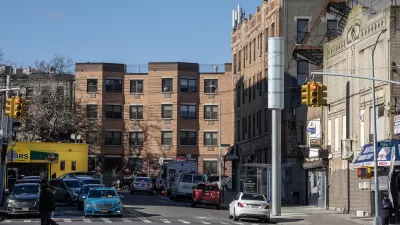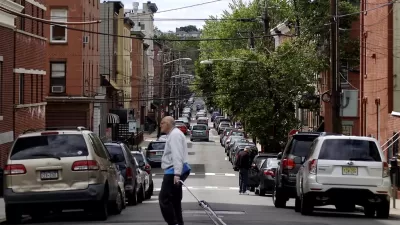The fact that cities are becoming more technologically reliant and interconnected is good, right? But, what happens if the controls of the "smart city" fall into the wrong hands? A new video game explores such a scenario, writes Nate Berg.
Announced this week by maker Ubisoft, "Watch Dogs" is set in a not-too-distant future in which "central operating systems" provide "control over the infrastructure of the city, including traffic lights, subway lines, surveillance cameras, water and nuclear power supplies, the electricity grid and even building-level security systems," explains Berg.
The presumption behind the dystopian setting for Watch Dogs is that, "In a less-than ideal world, that centralized network can collect information about city residents for the benefit of private companies, and the entire system will be vulnerable to hackers with intentions both sinister and deadly."
As Berg notes, "the
premise of tapping into the controls of a networked city for tactical or
even malicious purposes is both an intriguing role-playing concept and a
worrying vision of what may lie not too far ahead as cities become 'smart.'"
FULL STORY: The Dark Side of the Smart City, in Video Game Form

Maui's Vacation Rental Debate Turns Ugly
Verbal attacks, misinformation campaigns and fistfights plague a high-stakes debate to convert thousands of vacation rentals into long-term housing.

Planetizen Federal Action Tracker
A weekly monitor of how Trump’s orders and actions are impacting planners and planning in America.

In Urban Planning, AI Prompting Could be the New Design Thinking
Creativity has long been key to great urban design. What if we see AI as our new creative partner?

King County Supportive Housing Program Offers Hope for Unhoused Residents
The county is taking a ‘Housing First’ approach that prioritizes getting people into housing, then offering wraparound supportive services.

Researchers Use AI to Get Clearer Picture of US Housing
Analysts are using artificial intelligence to supercharge their research by allowing them to comb through data faster. Though these AI tools can be error prone, they save time and housing researchers are optimistic about the future.

Making Shared Micromobility More Inclusive
Cities and shared mobility system operators can do more to include people with disabilities in planning and operations, per a new report.
Urban Design for Planners 1: Software Tools
This six-course series explores essential urban design concepts using open source software and equips planners with the tools they need to participate fully in the urban design process.
Planning for Universal Design
Learn the tools for implementing Universal Design in planning regulations.
planning NEXT
Appalachian Highlands Housing Partners
Mpact (founded as Rail~Volution)
City of Camden Redevelopment Agency
City of Astoria
City of Portland
City of Laramie





























